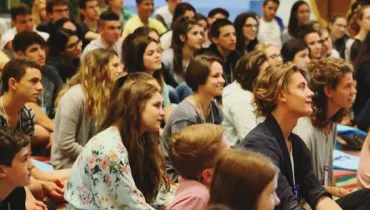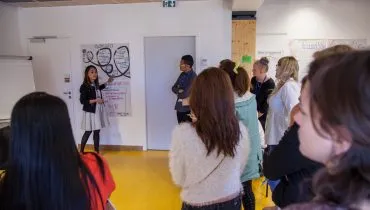AFS international programmes are supported by facilitated intercultural and global competency curriculums.
Currently there are no events to display
Currently there are no events to display


AFS international programmes are supported by facilitated intercultural and global competency curriculums.

AFS volunteers are trained to guide unique intercultural learning journeys for students, families and other volunteers.

AFS transformed hosting into a creative intercultural learning programme, complete with objectives and activities.

AFS helps schools create dynamic intercultural workshops, class exchanges and events to enrich the entire school community.
AFS prepares and activates global citizens of all ages and backgrounds—and we support a global movement to advance intercultural learning and global citizenship education, especially in schools, universities and youth organisations.

Universities and employers seek students and young adults who have a sense of the world beyond their own communities—and are comfortable interacting with people from other countries and cultures. Find out how our skills-building curriculum prepares young people to live, work and help make the world a better place at home or across the globe.
The AFS Host Family Programme is now supported by the AFS Host Family Intercultural Learning Journey. The Learning Journey helps families support their hosted students’ intercultural experience—and prepares family members to become global citizens.
The AFS Intercultural Link Learning Programme helps our volunteers and staff improve their intercultural skills, teaches them about key education theories and practices, and makes them better able to support the learning of others.






Schools play an important role in the AFS student exchange experience. They send and host AFS students, and work with AFS to create school-based intercultural learning programmes. AFS also collaborates with educators and education ministries to develop local, regional and national intercultural learning and global citizenship education policies and initiatives.

AFS offers international professional development opportunities designed specifically for educators to become more global in their classroom practice.

AFS arranges short classroom exchange programmes for a group of students to meet peers from another country and engage in intercultural learning together. Online and in-person options are available.
—Irina Bokova, Director General, UNESCO

As of 2015, AFS is proud to have entered into a “consultative status” partnership with the United Nations Educational, Scientific and Cultural Organisation (UNESCO). This status enables both organisations to collaborate on initiatives of mutual interest and social good.
AFS works closely and creatively with schools, universities, humanitarian and peace groups, governments and other NGOs on the issues that reflect our mission.

Specifically, Goal #4 focuses on the knowledge and skills needed to promote “sustainable development” and “sustainable lifestyles, human rights, gender equality, promotion of a culture of peace and non-violence, global citizenship and appreciation of cultural diversity and of culture’s contribution to sustainable development.
Currently there are no events to display

Written by AFS experts from around the world, this blog champions diverse perspectives about culture and education, inspiring readers to become intercultural leaders of their communities.

This digital magazine explores intercultural and global citizenship education, voluntarism and social impact, through articles, interviews, and learning tools created by respected thought leaders and experts.

Series of insightful and concise essays on key intercultural concepts based on research and practical experiences. The series is produced by AFS education experts for anyone studying about or working with intercultural topics.

AFS research efforts focus on achieving a deeper understanding of the impact of exchange programs, intercultural and experiential learning, often working in partnership with leading institutions and notable individuals.

This Curriculum for secondary school educators takes a unique approach to volunteerism, intercultural competence and global citizenship education, since the volunteer efforts of young people during World War I until today.